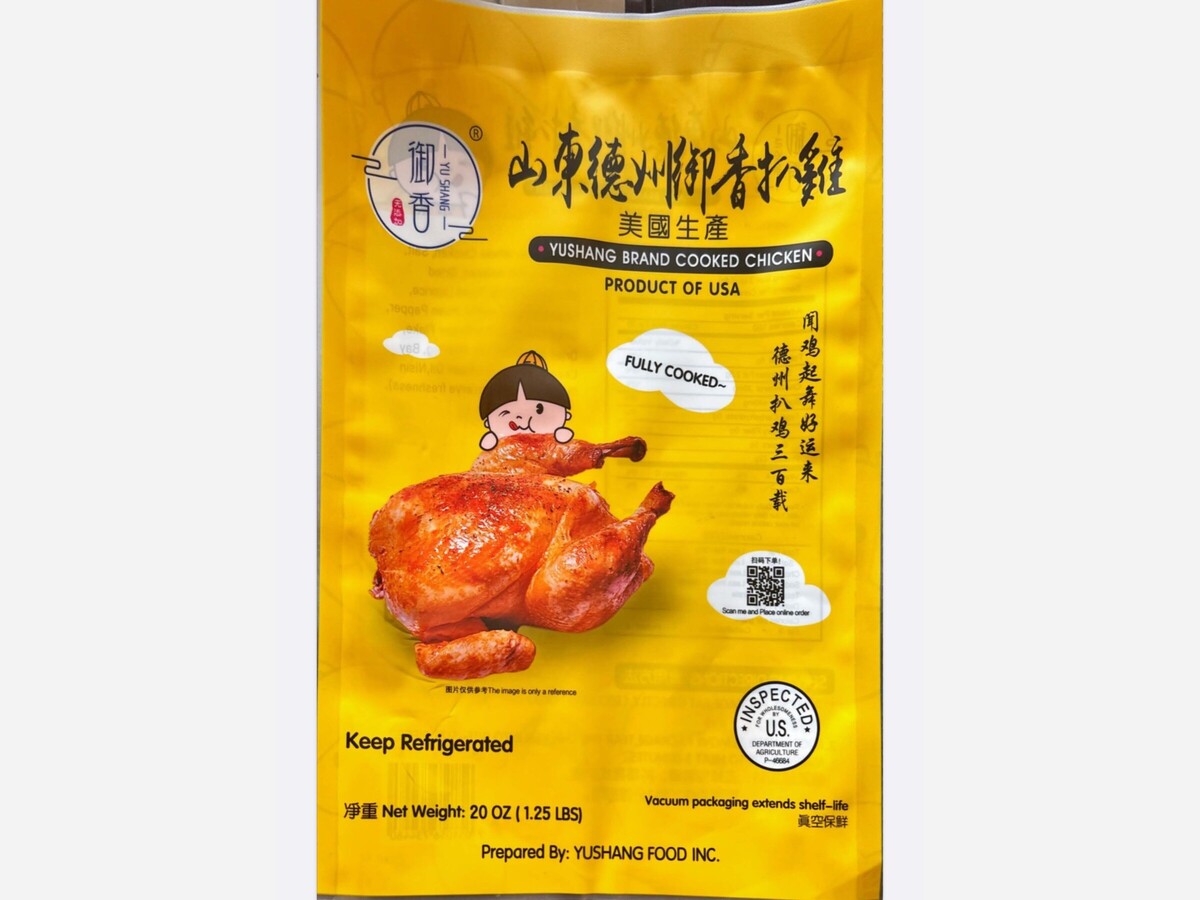Image


CDC food safety alert regarding a multistate outbreak of Listeria infections has been posted at Listeria Outbreak Linked to Ready-to-Eat Meat and Poultry Products | Listeria Infection | CDC.
Shang Food ready-to-eat meat and poultry products
See recall notice for full product list.
Yu Shang Food, Inc., a Spartanburg, SC, establishment, is recalling approximately 72,240 pounds of ready-to-eat (RTE) meat and poultry products within their shelf life that may be adulterated withListeria monocytogenes, according to the U.S. Department of Agriculture’s Food Safety and Inspection Service (FSIS). This release is being reissued to expand the scope of the November 9, 2024, recall.
All ready-to-eat products produced prior to October 28, 2024, are subject to recall. View full product list. View labels.
The products subject to recall bear establishment number “P-46684” or “EST. M46684” inside the USDA mark of inspection. These items were shipped to retail locations nationwide and available for purchase online.
The problem was discovered after FSIS performed routine testing and follow-up activities of finished product produced by Yu Shang Food, Inc. on October 21, 2024, that confirmed the product was positive for Listeria monocytogenes. Additional testing has confirmed that Listeria monocytogenes was detected in product and in environmental samples collected by FSIS. Whole genome sequencing is underway to determine if these samples match the outbreak strain.
Working in conjunction with public health partners, FSIS determined that there is a link between the RTE meat and poultry products from Yu Shang Food, Inc. and an illness cluster.
Consumption of food contaminated with L. monocytogenes can cause listeriosis, a serious infection that primarily affects older adults, persons with weakened immune systems, and pregnant women and their newborns. Less commonly, persons outside these risk groups are affected.
Listeriosis can cause fever, muscle aches, headache, stiff neck, confusion, loss of balance and convulsions sometimes preceded by diarrhea or other gastrointestinal symptoms. An invasive infection spreads beyond the gastrointestinal tract. In pregnant women, the infection can cause miscarriages, stillbirths, premature delivery or life-threatening infection of the newborn. In addition, serious and sometimes fatal infections in older adults and persons with weakened immune systems. Listeriosis is treated with antibiotics. Persons in the higher-risk categories who experience flu-like symptoms within two months after eating contaminated food should seek medical care and tell the health care provider about eating the contaminated food. Anyone concerned about an injury or illness should contact a healthcare provider.
FSIS is concerned that some product may be in consumers’ refrigerators/freezers. Consumers who have purchased these products are urged not to consume them. These products should be thrown away or returned to the place of purchase.
FSIS routinely conducts recall effectiveness checks to verify recalling firms notify theircustomers of the recall and that steps are taken to make certain that the product is no longer available to consumers. When available, the retail distribution list(s) will be posted on the FSIS website at www.fsis.usda.gov/recalls.
Key Points:
What You Should Do:
What Businesses Should Do:
Listeria Symptoms:
If you have questions about cases in a particular state, please call that state's health department.